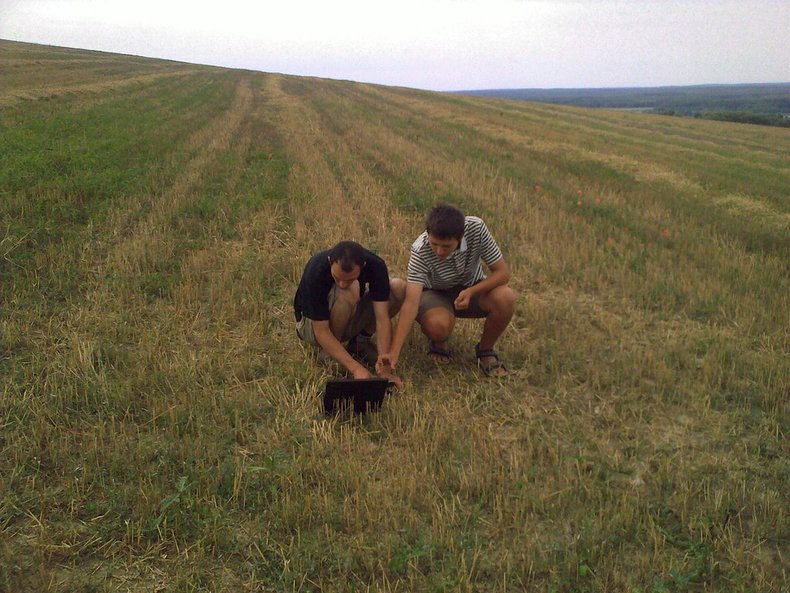
 |
A-Z | Popular | Blog | Business | Search » |
19 Examples of Consumer To Business FarmingImagine a city where everyone has a rooftop garden that is mostly managed by small robots. Such gardens might generate a surplus that locals could sell to supermarkets and restaurants using an app or service.MediaAn advertising firm that licenses photos from an individual photographer who features their works online.PublishingAuthors are often only picked up by large publishers after then have achieved some degree of success on their own. As such, the publishing industry has long resembled a consumer-to-business model.FilmThe cost of film production could drop dramatically due to advancements in technology such that amateurs may be able to produce high quality works that are marketed to businesses such as streaming services and theatres. Consumers could also participate in any element of film production, for example producing 3d models or environments.PromotionPayments to individual influencers for promoting products and services.FashionFashion that is designed as a competition. This could be completely run by consumers using design tools and systems for rating prospective designs.EnvironmentBusinesses that reward consumers for some type of environmental clean up such as retrieving ocean plastic from beaches. This would assume that in the future businesses are responsible for the end-to-end environmental impact of their operations and products.RetailConsumers can sell into ecommerce markets and already dominant in areas such as used goods. This is mostly a consumer-to-consumer market but businesses buy from these markets as well.ScienceIndividual participation in science has enormous potential that has hardly been tapped. For example, a study based on sensor readings collected from millions of individual smart phones. It is also likely that science enthusiasts will eventually challenge institutions by becoming the dominant source of new discoveries. This will be enabled by apps and devices that make science more accessible.FinanceConsumers essentially lend to businesses with bank deposits and investments such as stocks.TransportPeople who purchase self driving electric cars who lend them out whenever they aren't using them. This could be managed with an app whereby the owner schedules their own use and releases the vehicle for rental at all other times.EnergyConsumers who own solar panels who sell excess power to a grid.ComputingConsumers who sell computing cycles to businesses when they aren't using their devices. In future, this could reduce or eliminate the need for data centers.CodingCoding competitions that replace the work of contractors. This becomes more likely due to high level languages that make programming an exercise of imagination as opposed to technical know-how.Information TechnologyConsumer design and implementation of technologies consumed by businesses such as a mobile app. It is increasingly easy for consumers to produce viable technology products using high level constructs such as platforms.MusicMusic has always drawn vast participation whereby musicians are often viewed as amateurs until they have some commercial or institutional success. This resembles a consumer-to-business model. For example, a student band that scores a local hit that is then signed by a record label.EducationHigher education is currently dominated by high status institutions that essentially sell status as much as they facilitate learning. This is expensive and somewhat dysfunctional such that it is easy to imagine students and knowledgeable individuals self-organizing something better. This is consumer-to-consumer but businesses also purchase training and education for their staff.HospitalityIndividuals who lend out their properties when they aren't in use. Another example of consumer-to-consumer that can also be consumer-to-business.Professional ServicesIn theory, a large number of professions can be challenged by non-professionals using technology. For example, an app that allows anyone to architect a building that is architectural sound. Such an app could allow all architecture to be developed as competitions allowing amateur enthusiasts to challenge professionals.NotesThe influence of consumers on the economy has increased for the past 100+ years in a broad trend known as the consumer economy. Consumers are increasingly participating in value production in another trend known as long tail. The direction of these trends indicates that consumers may eventually dominate all aspects of economic production such that the only businesses will be those that facilitate this process. In other words, consumer-to-consumer and consumer-to-business may challenge all industries and professions with time.Business ModelsThis is the complete list of articles we have written about business models.If you enjoyed this page, please consider bookmarking Simplicable.
Business ModelsA list of common business models.Marketing MixAn overview of the elements of the marketing mix known as the 4Ps and 7Ps.Utilities
A list of the basic types of utility.
Global BusinessAn overview of global business with examples.
Home Business
A list of common types of home business.
Used Goods
The common types of used goods.
Product ExamplesA list of the common types of product with examples of each.Services ExamplesA list of common services.Business MarketA list of major business markets.Long TailA definition of long tail with examples.Long Tail Distribution
A definition of long tail with an example.
Cottage Industry
The definition of cottage industry with examples.
TrendingThe most popular articles on Simplicable in the past day.New ArticlesRecent posts or updates on Simplicable. Site Map
Architecture
Behavior Branding Business Business Analysis Business Disadvantages Business Models Business Strategy Cities Color Theory Colors Communication Computing Creativity Culture Customer Experience Customer Service Data Decision Making Design Design Thinking Economics Education Engineering More ...
© 2010-2023 Simplicable. All Rights Reserved. Reproduction of materials found on this site, in any form, without explicit permission is prohibited. View credits & copyrights or citation information for this page. |